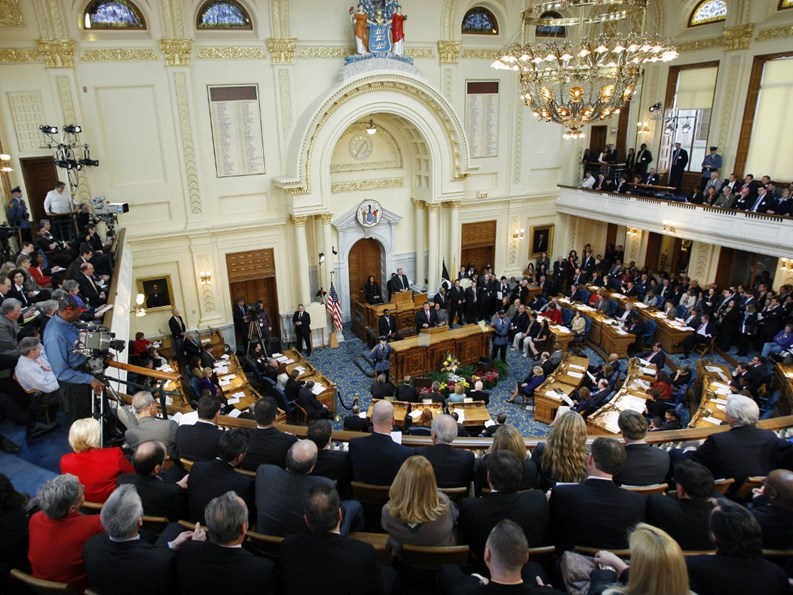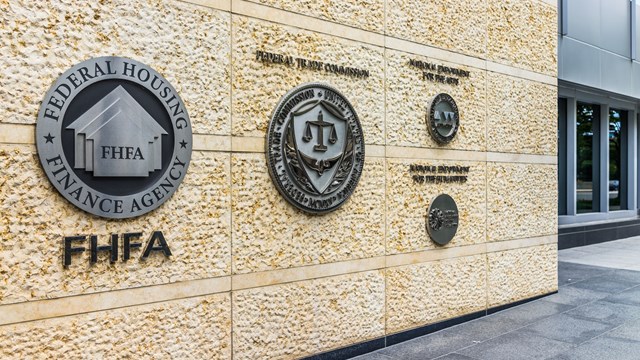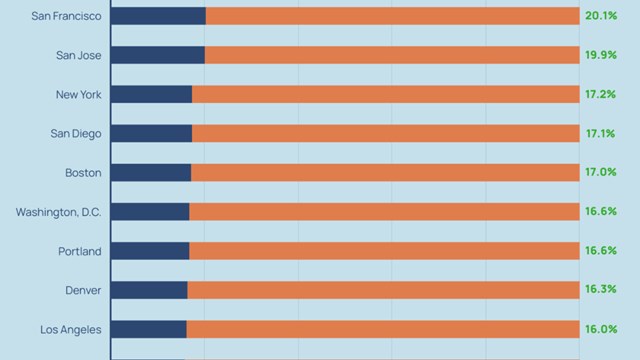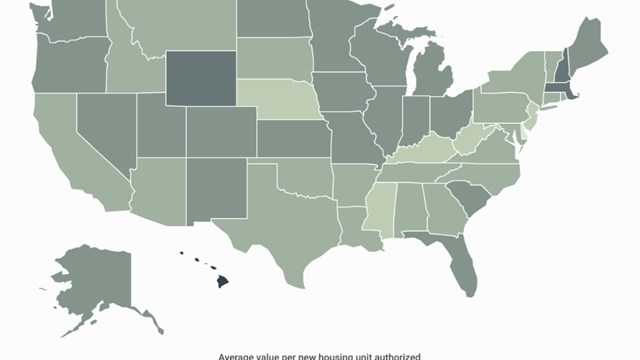In today’s economic climate, budget woes abound and pretty much dominate the legislative landscape in New Jersey and elsewhere. With Republican Governor Chris Christie trying to stem the tide of a monumental $10.7 billion budget deficit, legislation affecting housing has kind of taken a back seat to the current fiscal crisis in the Garden State.
CAI-NJ’s Legislative Liaison
But that being said, a host of new legislative initiatives affecting condos and HOAs have still made their way onto the legislative docket. The New Jersey chapter of the Community Associations Institute (CAI-NJ) tracks all pertinent legislative activity through its Legislative Action Committee (LAC), which is chaired by Mary Faith Radcliffe, AMS, a principal with RCP Management in Princeton.
Community Associations Institute (CAI) is a national, nonprofit organization created in 1973 to educate and represent America’s 205,000 residential condominium, cooperative and homeowner associations and related professionals and service providers. One of the bills CAI-NJ is watching is A102, an Assembly bill that would authorize the New Jersey Department of Community Affairs (DCA) to establish bidding and conflict of interest guidelines for homeowners’ associations. An association is required by the bill to solicit a minimum of three quotes for any contract for services or materials, whenever the amount payable by the association in connection with the services or materials exceeds $10,000 or five percent of the association’s budget, whichever is less, in any 12-month period. An association is required to solicit a minimum of three sealed bids, to be opened only at a publicly-announced meeting open to all unit owners, for any contract for services or materials whenever the amount payable for the services or materials exceeds $25,000 or 10 percent of the association’s budget, whichever is less, in any 12-month period.
Accordingly, the association is required to award the contract to the vendor providing the lowest quote or bid, unless the board determines, for good cause, expressly stated at a open meeting attended by owners that it would be detrimental to the best interests of the residents of the common interest community to do so. The bill also provides conflict of interest guidelines for board members and property managers, which are intended to prevent self-dealing.
According to Radcliffe, affordable housing reform is another key issue for CAI-NJ. “Community associations are of course keeping a close eye on this issue as well,” she says. “TheGovernor has made it well known that he is behind radical reform of affordable housing administration in New Jersey.On June 10, 2010, the Senate passed [a bill] which would abolish the Council on Affordable Housing (COAH).The Assembly version has not yet passed, so the issue still has a way to go.We’ll be keeping a close eye on this process.”
Another bill the group is watching carefully is A2638, which Radcliffe says is before the Assembly Housing and Local Government Committee. “It would require municipalities to reimburse qualified private communities for street paving costs,” she says,“[and] wouldensure thathomeowners incommunity associations don’t pay twice for the same thing. Municipal taxes pay forrepairs and repaving onmunicipal roads. Yet, some community associations that have dedicated their roads to the municipality still pay privately for the paving of those roads. CAI believes that these municipalities are‘double dipping’ into the pockets of the community association homeowners.”
According to Radcliffe, the LAC’s goals over the next year are myriad. “Over the past 18 months, the Managers Licensing Task Force, a subcommittee of the LAC, has met to discuss and develop an outline for legislation to require community association managers to be licensed in the state of New Jersey. This is a national trend that will raise the bar for managers. The Task Force has spent many hours researching, reviewing legislation from other states, discussing and designing a plan for managers to earn a license.The final proposal will include an educational element, industry experience and a state test. We realize this may take several years, but we believe that licensing association managers will provide consistent quality to associations throughout the state.
Another new piece of legislation for new homebuyers would provide a tax credit. A1678/S692 establishes the New Jersey Homebuyer Tax Credit Program under the New Jersey gross income tax for home purchases during calendar year 2010. Refundable tax credits may be allowed for up to $15,000 or 5% of the home purchase price, which ever is less, for homebuyers of new and previously owned homes. The total credits available will be capped at $100 million, with $75 million allocated for purchases of newly constructed homes not previously occupied and $25 million allocated for purchases of previously occupied homes. The home must continue to be occupied as the taxpayer’s principal residence for three years. This bill was introduced in January, was voted out of committee in March, and was passed by the Assembly on May 20, 2010. It awaits Senate action.
Lobbying by the NJAA
Founded in 1986, the New Jersey Apartment Association (www.NJAA.com) is a statewide organization of apartment owners, managers, builders, developers and those involved in allied industries. The organization represents managers and owners of more than 160,000 rental units throughout the state and also serves members on a national level through its affiliation with the National Apartment Association (NAA).
Nicholas Kikis is NJAA’s director of regulatory affairs & research, and oversees the group’s regulatory agenda. He liaises with state regulatory agencies, addresses membership compliance questions, tracks municipal issues and trends, and conducts policy research. “Right now our attention is on the budget,” says Kikis of the Legislature’s current holding pattern. “We’re kind of waiting to see the details that will unfold once the budget bills are ultimately introduced. The Assembly’s focus is on the budget, so I’m not expecting these things to be addressed until after the budget break. From what I’m hearing, the Legislature’s plan is to come back sometime after the summer and address some of the toolbox issues for municipalities. Hopefully some of the more housing related issues will serve to see action after the budget break and the beginning of the second half of the year. They take the summer off. But this year might be a little bit different—they might be doing some work this summer. The expectation is that they’ll come back this fall and start to look at some housing related issues, like submetering, pools, and bedbugs.”
Recently, the NJAA has advocated for a repeal of the prohibition on submetering utility usage at apartment buildings, which all 49 other states allow and which, according to their statistics, has been shown to reduce usage by 15 to 30 percent. “Water submetering is also one of the top priorities for us,” says Kikis, “and that is to make sure the apartment owners have the ability to bill tenants for their usage. In our estimation, the program will [cut water waste] by 30 percent. So it’s one of those no-brainer initiatives out there.”
In particular, the bedbug legislation (A2072) has advanced to the Senate after passing the Assembly May 20th by a count of 73-4-1. In particular, says Kikis, the key is obtaining cooperation from all parties to get rid of the infestation. “Basically what that bill does is it makes the landlord responsible to cover the first treatment, but it also looks at it in a little bit of a broad perspective and tries to get the tenants to cooperate with the property owner,” he says. “Because the property owner has the tools necessary to hire the exterminator, to have the exterminator come in and remediate the unit. That cooperative element is key even though it puts the onus of cost on the property owner. It also creates some tools, so hopefully, if it works as intended, to make it easier to deal with bedbug remediation. So that’s definitely one that’s advancing.”
Another so-called housing reform concerns comprehensive legislation to overhaul the state’s affordable housing policy by eliminating the Council on Affordable Housing (COAH). The bill, S1, has become the focal point of reform efforts in the Legislature because it would do away with council-imposed “housing need” calculations, and replace it with a requirement that municipalities must set aside 5 to 10 percent of new developments as deed restricted affordable housing. Under the amended legislation, municipalities would be deemed inclusionary if 7.5 percent of their existing residential units were price restricted or if 33 percent were multifamily housing or manufactured housing. NJAA continues to monitor the topic.
Another initiative, according to Kikis, supported by NJAA concerns pools. A proposal is making its way through the Assembly to amend current regulations. “Right now existing law treats residential swimming pools as if they were public swim clubs,” Kikus says. “It would move them into the same category as a condominium, a health club, or a hotel, as a regular residential swimming pool instead of a public facility. The benefit of that to apartment owners is relatively self-explanatory but to residents you’ll start to see more pools and also fewer fees for pool usage. It’s a pretty important bill. ”
Another of NJAA priorities (S82/A427) was signed into law by Governor Chris Christie on May 5, 2010. The initiative sponsored by Senator Ron Rice (D-Essex), Senator Jeff Van Drew (D-Cape May), Assemblyman Jerry Green (D-Union), and Assemblywoman Alison McHose (R-Sussex), amends the Municipal Land Use Law to change a general rule governing land use decision-making.
Under current law, a planning board or zoning board of adjustment applies the law in effect at the time it renders its decision rather than the law in effect when the issues were initially presented. Under the new law P.L. 2010, c.9, a land use board would be required to make its decision on an application for development in accordance with the regulations that are in effect on the date the application is submitted.
“The administration was quick to fulfill on its promise of addressing impractical laws,” stated Jean Maddalon, executive director of NJAA. “We are gratified to have been a part of the process that will save government and industry needless expense without reducing services or quality of life for our residents.”
Debra A. Estock is managing editor ofThe New Jersey Cooperator.










Leave a Comment